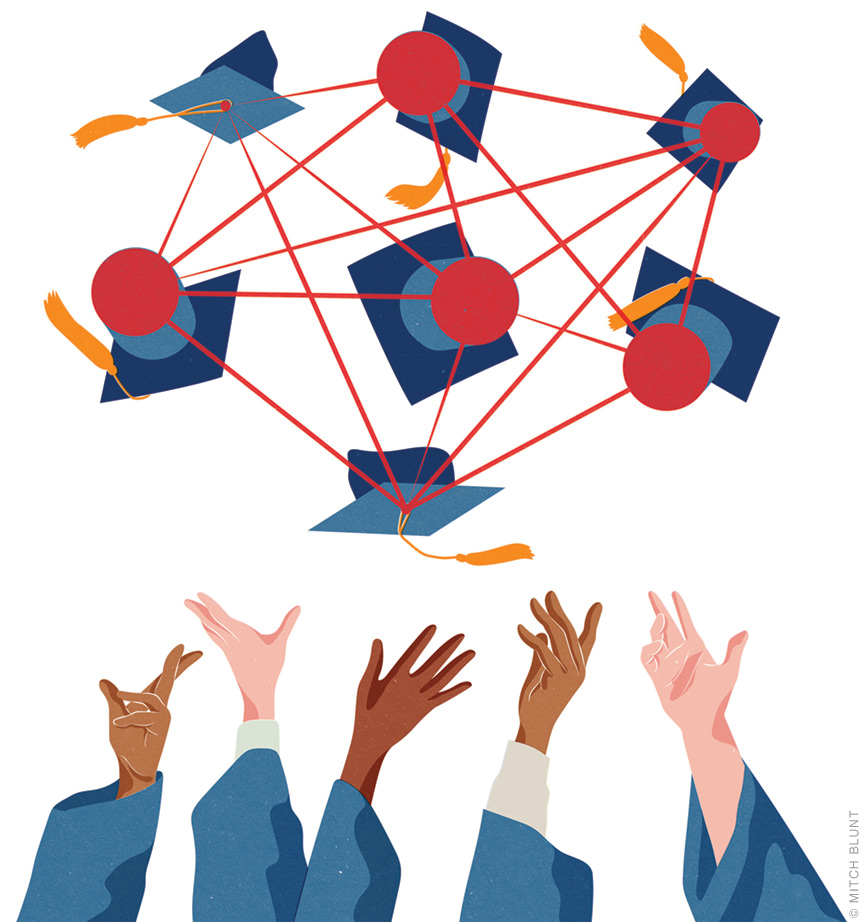
Some 27 years after IBM’s Deep Blue defeated Garry Kasparov in chess, 13 years after Apple launched the virtual assistant Siri, and not quite 15 months after ChatGPT started boggling human minds around the world, artificial intelligence registered another milestone: as an official bachelor’s degree field at the University of Pennsylvania.
In February the School of Engineering and Applied Science announced the Raj and Neera Singh Program in Artificial Intelligence. Beginning this fall, it will offer a bachelor of science in engineering in AI, the first undergraduate major of its kind in the Ivy League.
Led by George J. Pappas, the UPS Foundation Professor of Transportation in Penn Engineering, it will encompass high-level coursework in topics including machine learning, computing algorithms, data analytics, and advanced robotics. Students will take seven course units in mathematics and natural science, five in computing, and 12 across a six-category spectrum of courses focusing on AI. They will also have access to about 30 electives, ranging from “Mathematics of Machine Learning” and “Brain Computer Interfaces” to “Algorithmic Game Theory” and “Trustworthy AI.”
“Our carefully selected curriculum reflects the reality that AI has come into its own as an academic discipline, not only because of the many amazing things it can do, but also because we have fundamental questions about the nature of intelligence and learning, how to align AI with our social values, and how to build trustworthy AI systems,” Zachary Ives, the Adani President’s Distinguished Professor and Chair of the Department of Computer and Information Science, said in a statement.
“Penn Engineering has long been a pioneer in computing and education, with ENIAC, the first digital computer, and the first PhD in computer science,” said benefactor Raj Singh, who is the principal owner, along with his wife Neera, of Telcom Ventures, a private investment firm specializing in telecommunications and information technologies. “This proud legacy of innovation continues with Penn Engineering’s AI program, which will produce engineers that can leverage this powerful technology in a way that benefits all humankind.”
